TRIBUTE
Comrades champion Sam Tshabalala broke down the door for others
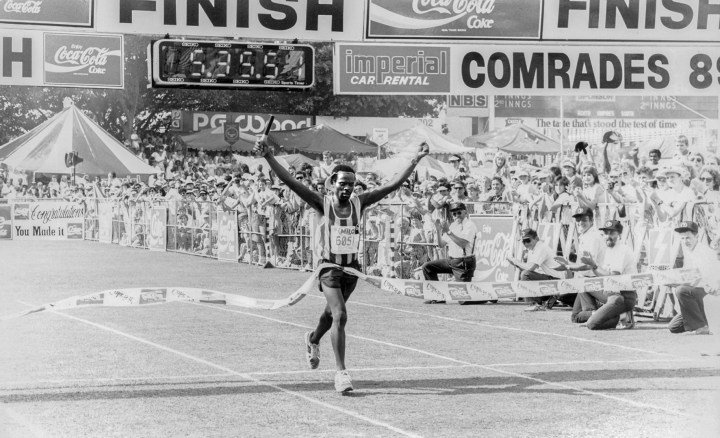
Sam Tshabalala, the first black runner to win the Comrades Marathon, passed away suddenly on Sunday night.
Long before it was a cool fashion statement, Sam Tshabalala wore his cap backwards. It was a trademark look for the man from Zamdela, near Sasolburg, and one that became etched in South African sporting folklore on 31 May 1989.
And for a while, but especially on a cool KwaZulu-Natal morning in early winter 1989, the chasing field only had a view of his peak on the back of his head as he stormed to a stunning Comrades win.
“I will never forget Sam during the 1989 Comrades Marathon when he passed me with his running cap, and he was wearing the cap with the flap at the back covering his neck,” former rival Nick Bester said.
“He went on to win the race as the first black athlete to do so. Willie Mtolo was in second place, Jean-Marc Bellocq third and I in fourth position.
“Sam also ran the Comrades Marathon again many years later after he survived a terrible motor accident. A true Comrades Marathon Champion, he was always down to earth and humble.”
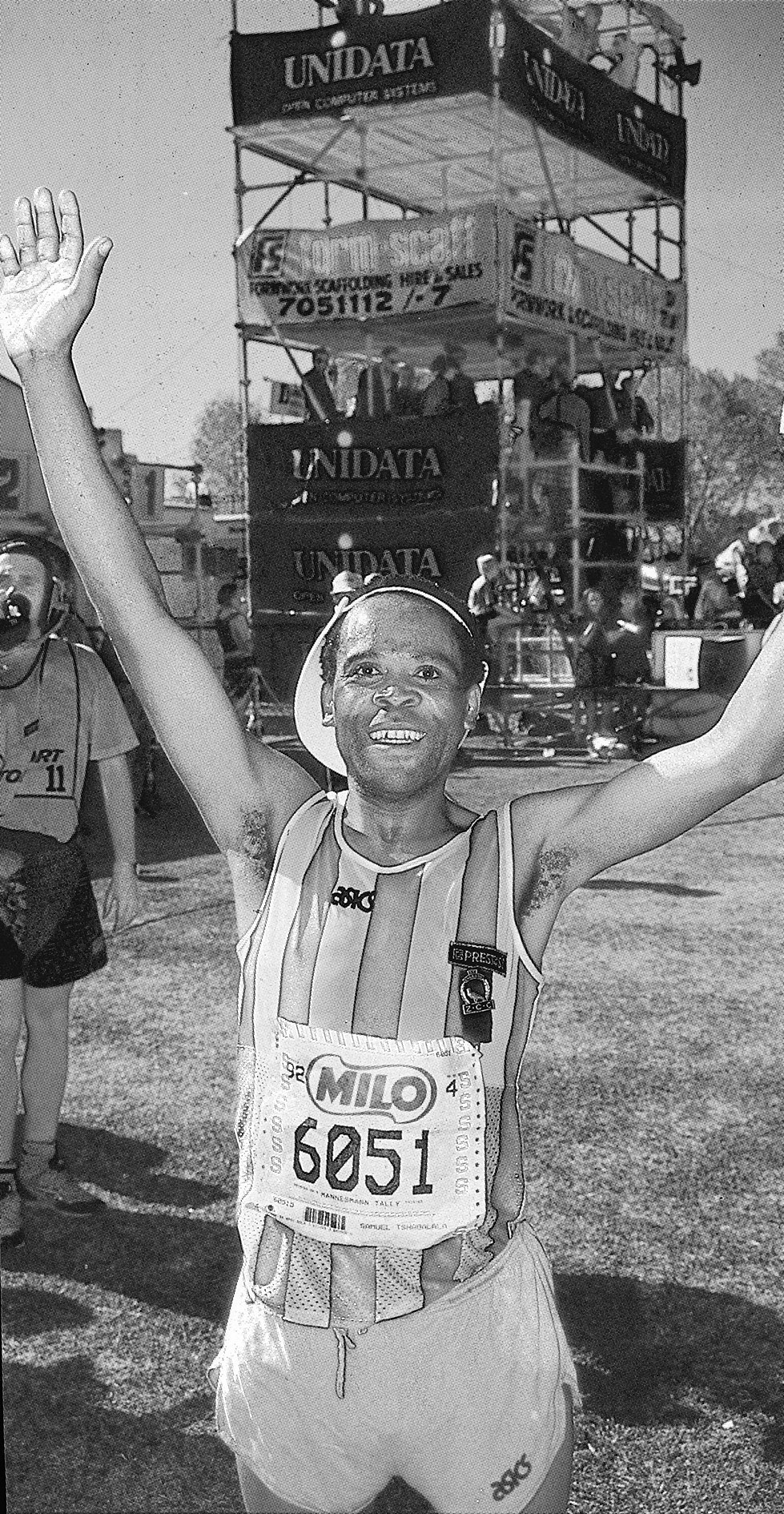
Sam Tshabalala after the 1989 Comrades Marathon. (Photo: Gallo Images / Beeld Archives)
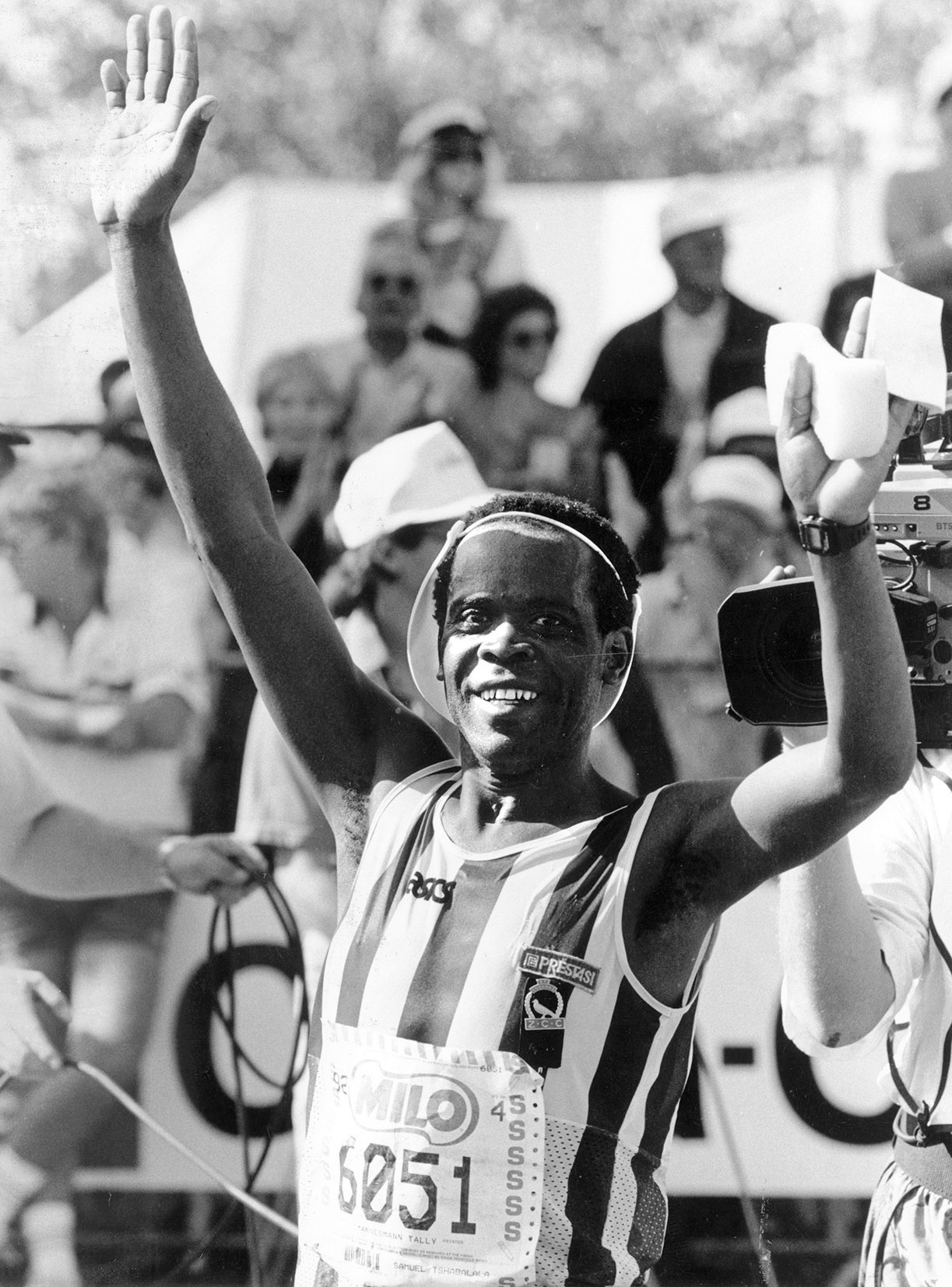
Sam Tshabalala’s 1989 Comrades victory opened the door for other athletes. (Photo: Gallo Images / Beeld Archives)
Sadly, last Sunday, the 65-year-old Tshabalala collapsed and was declared dead on arrival at hospital. He leaves behind his wife of 45 years, Julia, seven children and 18 grandchildren. But he also leaves a legacy that inspired a generation.
Since becoming the first black runner to win the Comrades, another 12 black athletes have won the race.
Breaking barriers
The Comrades had become synonymous with Bruce Fordyce in the 1980s. But in his absence in 1989 the field was wide open and the little-known Tshabalala was about to race into history.
Read in Daily Maverick: “Of comrades and the Comrades”
Fordyce, the eight-time winner of the Comrades between 1981 and 1988, chose not to run the marathon in 1989. He was fatigued after running a 100km race in Stellenbosch in February and felt he wouldn’t be in condition to defend his title.
It threw the race wide open because in the previous 12 years there had only been three winners – Fordyce (8), Alan Robb (3) and Piet Vorster.
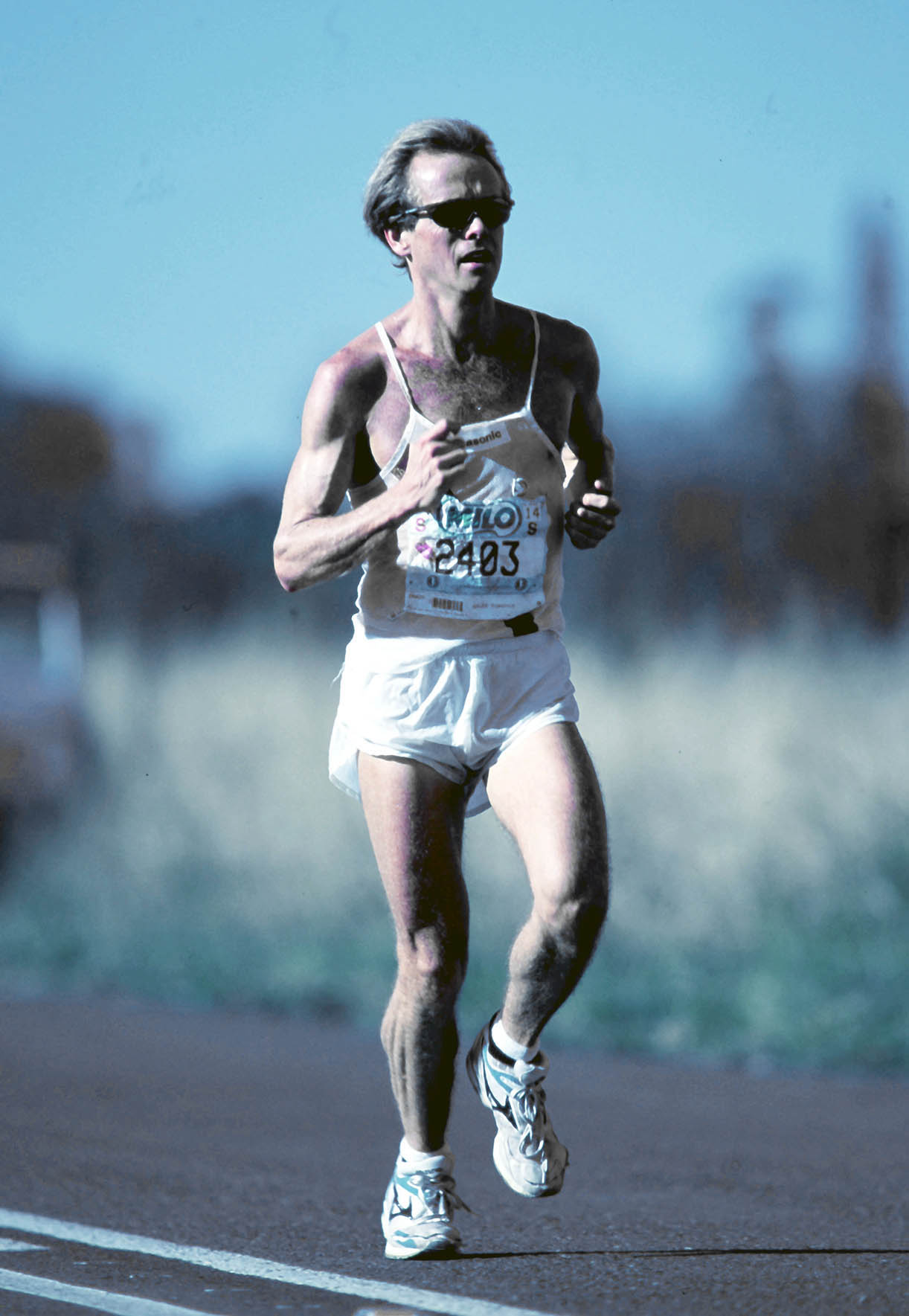
Bruce Fordyce during a 88km marathon from Durban to Pietermaritzburg on 31 May 1994. (Photo: Gallo Images)
Black athletes, as well as women of all colours, had only been allowed to run the Comrades from 1975. In that year, Vincent Rakabele finished 20th to become the first black athlete to win a Comrades medal. It was the start of a journey that culminated in Tshabalala’s day of glory 14 years later.
Tshabalala, running in the colours of the Spectrum Athletic Club, was only participating in his third Comrades. His previous two attempts had been “up” runs. In 1989 it was a down run.
No one really knew who he was, while the big stories leading into the 1989 race were Fordyce’s absence, the sensational form of leading women’s runner Frith van der Merwe, and 80-year-old Wally Hayward’s attempt to finish under the 11-hour cut-off time.
In the event, Van der Merwe shattered the women’s record, clocking 5:54.43. It was such a good time that she finished 15th overall. And Hayward, a five-time winner in his prime, collapsed over the line with 1:57 seconds to spare to create history as the oldest finisher. He remains the only octogenarian to complete the Comrades Marathon.
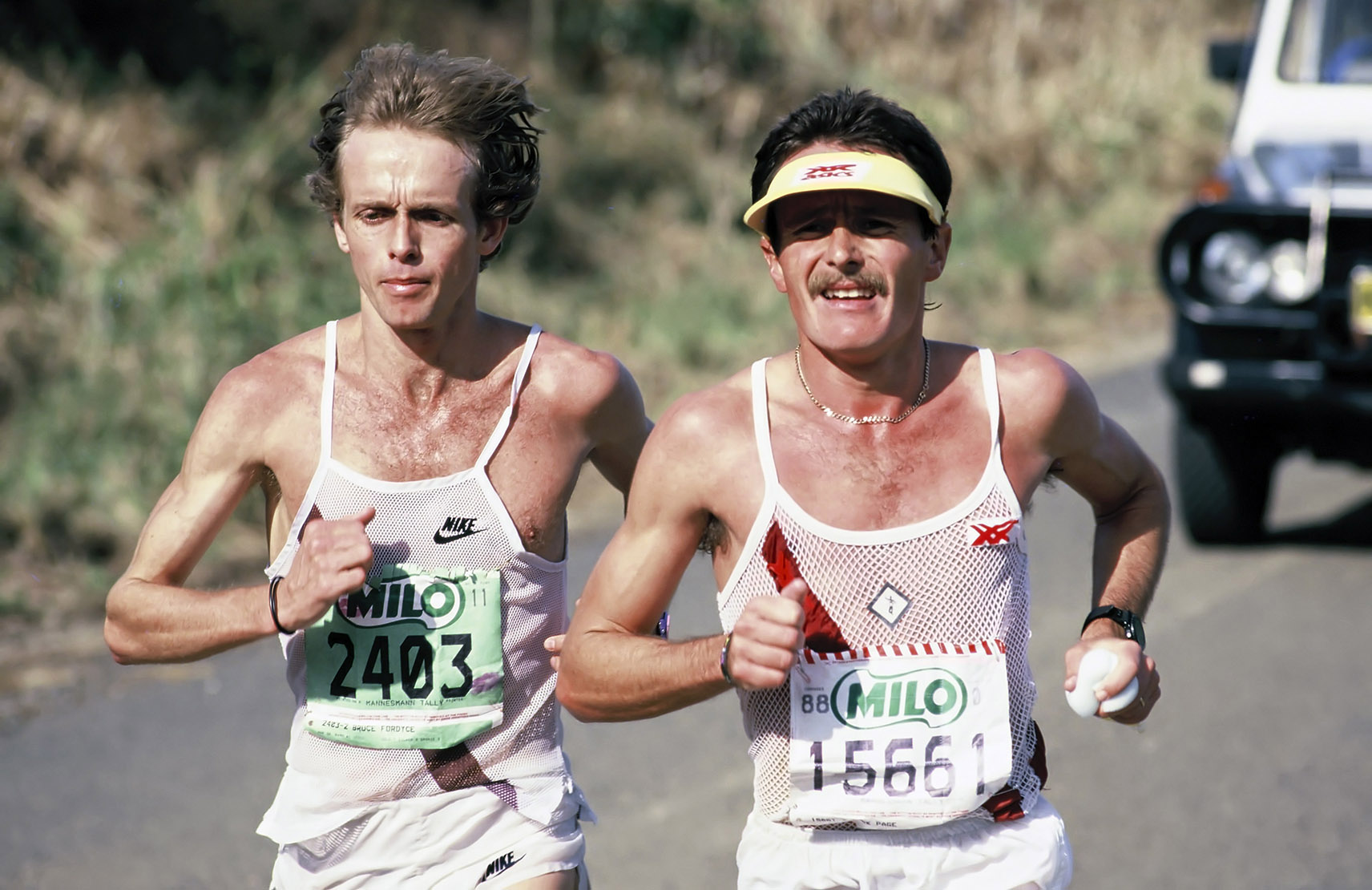
Bruce Fordyce (left) during the Comrades Marathon. (Photo: Wessel Oosthuizen / Gallo Images)
In the immediate aftermath of those two stories, Tshabalala’s eventual win, which was so significant for so many reasons, was not as acclaimed as it might have been at the time.
But as the years have gone by, Tshabalala’s barrier-breaking run, which saw not only a black runner triumph, but the classy Mtolo finish runner-up, has earned its rightful place in history. It was certainly a cultural change in the history of the race.
Cagey race
Some critics have said Tshabalala would not have won had Fordyce started. It’s an assertion that rankled Tshabalala.
“The year before I had beaten Bruce in a race called the Milo Korkie from Pretoria to Germiston,” Tshabalala told IOL in an interview in 2019 to mark the 30th anniversary of winning the race.
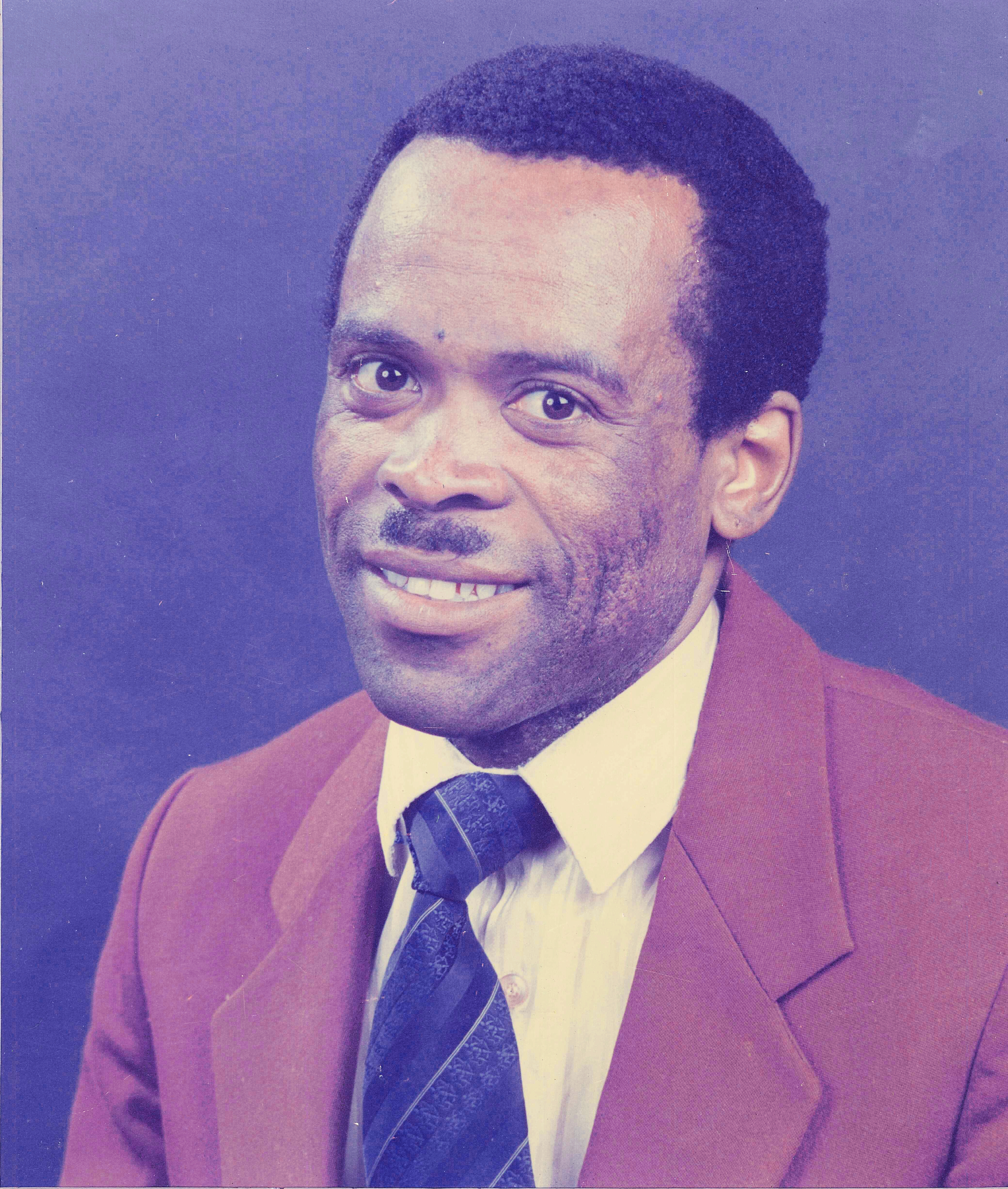
Sam Tshabalala was known and admired for his humility, kindness and giving nature. (Picture: Comrades Marathon Association)
“After that he (Fordyce) said to me, ‘you won’t beat me at Comrades’, but I had studied him and knew exactly what I had to do to win there. He did not come, but I can tell you I would have beaten him.”
Read in Daily Maverick: “Masses descend on KZN as Comrades Marathon returns after two-year hiatus”
Fordyce, always a decent man, has never undermined Tshabalala’s feat. After hearing of Tshabalala’s death, Fordyce was one of the first to express condolences and the first to defend his performance.
“I wasn’t there (in 1989) and Sam did enough to win (by four minutes),” Fordyce told Daily Maverick. “In 1989 he beat Willie Mtolo into second place. Willie would go on to win the New York Marathon. Also, Sam would probably have won more Comrades Marathons, but he suffered brain injuries in a bad motor accident in 1991.
“We raced each other again in 1990. But Sam had badly overtrained (in my opinion) in an attempt to defend his title. He finished 13th. Early in the 1991 season he was looking very good. But then he had his accident and that really ended his competitive career.”
In the 1989 race, Tshabalala, and all of the men’s field, were almost unnoticed until midway through the actual race because of Van der Merwe’s stunning pace in the women’s competition.
But as always, attention gradually shifted to the front of the race where a tough battle was emerging. The Comrades archives recall the race thus:
“From the off, in a chilly Pietermaritzburg, it was a cat-and-mouse game for most of the way, with the lead being shared by many over the first half of the race.
Visit Daily Maverick’s home page for more news, analysis and investigations
“The initial breakaway occurred on the drop-down of Field’s Hill. (Shaun) Meiklejohn managed to work his way clear of the thinly spread lead group, to head the procession through Pinetown.
“It proved to be a short-lived lead. Tshabalala slipped past Meiklejohn on the lower slope of Cowie’s Hill. He was soon joined by Mtolo as Meiklejohn tired and fell back. Jean-Marc Bellocq, a survivor from the Stellenbosch 100, was at this late stage moving ominously through the field.
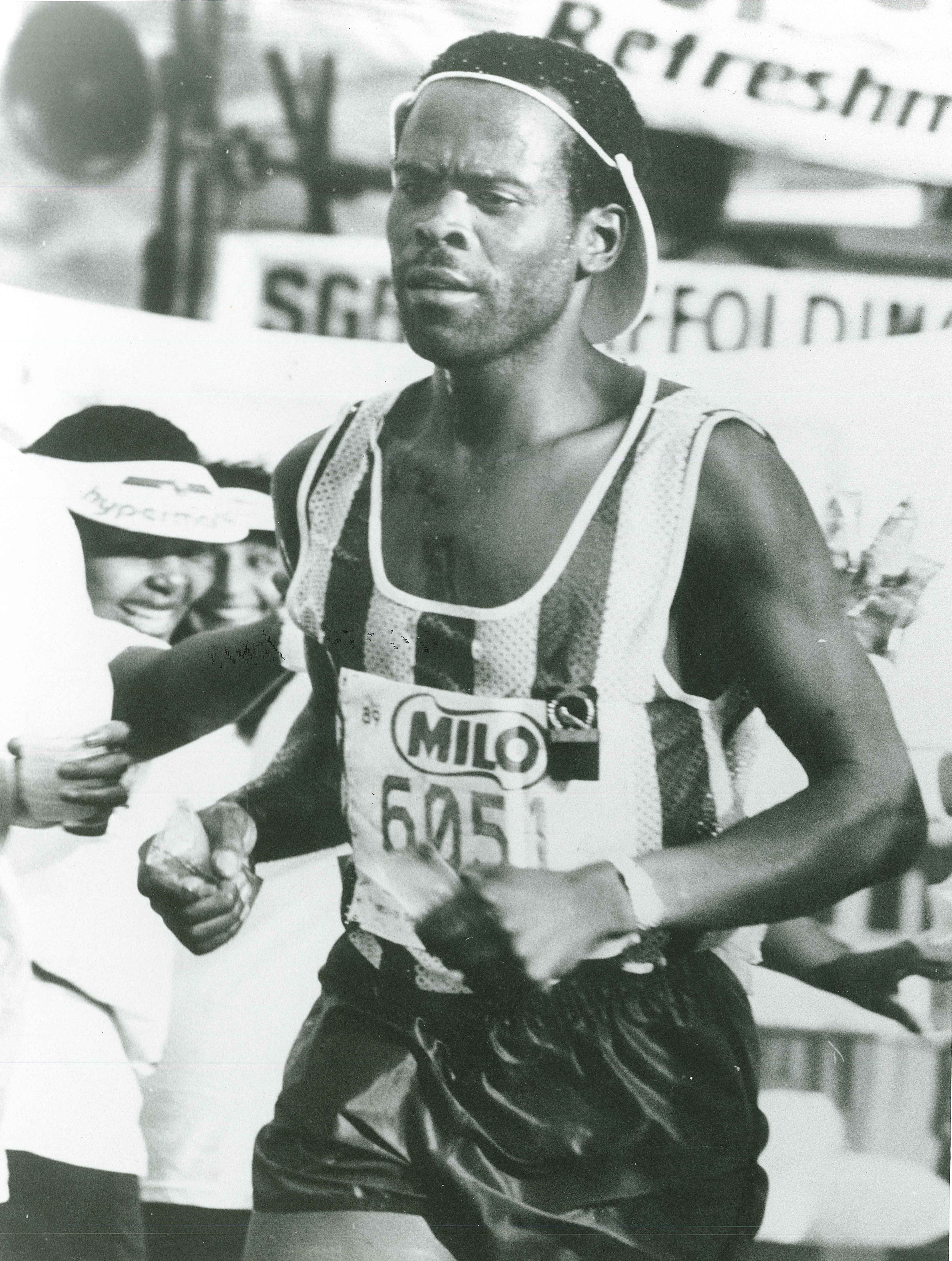
Sam Tshabalala, with his trademark back-to-front peak, on his way to Comrades glory in 1989. (Photo: Supplied)
“Up front, over the rolling hills into Durban, Tshabalala and Mtolo swapped the lead frequently. It was clearly anyone’s race. Mtolo, a local man, was the crowd favourite as the two leaders dashed into the coastal city.
“The smooth-striding Mtolo was impeded on numerous occasions by excited spectators. Whether this was a hindrance or not, is unknown, but on Berea Road, just two kilometres from the finish, he was reduced to walking on occasions as a cramp bit into his calf muscles.
“Tshabalala did not need a second invitation. He seized the initiative and built a four-minute advantage by the time he reached Kingsmead Stadium.”
Great race, great friends
Mtolo, who was closer than anyone to history that day, still recalls it fondly, even though he missed out on becoming the first black runner to win the prestigious ultramarathon.
“We ran a great race in 1989 and remained very good friends since then,” Mtolo said. “We had a lot to talk about every time that we met. I know that he was involved in assisting youngsters in his village with their running.
“That was Sam for you – helpful, encouraging, motivating and a true inspiration. I will always remember him.”
So will we all. Hamba Kahle, Sam. DM


















 Become an Insider
Become an Insider
I shall never forget this race and Sam Tshabalala’s win.